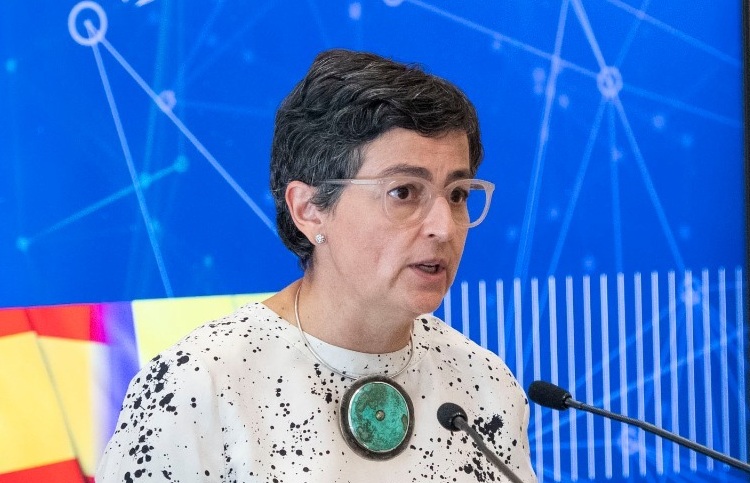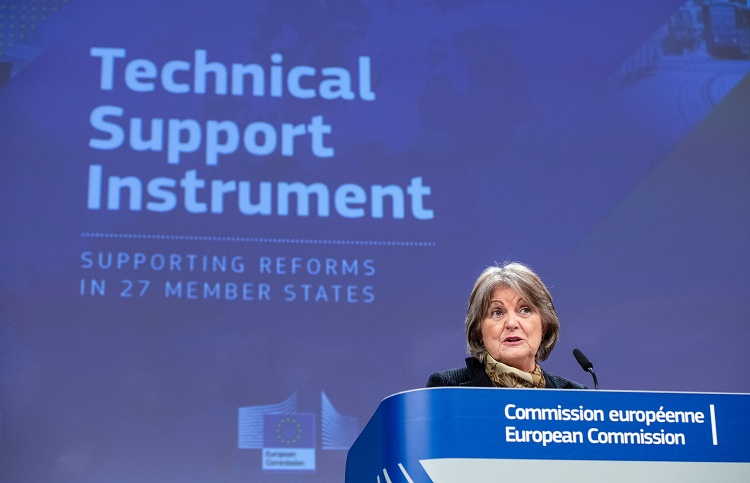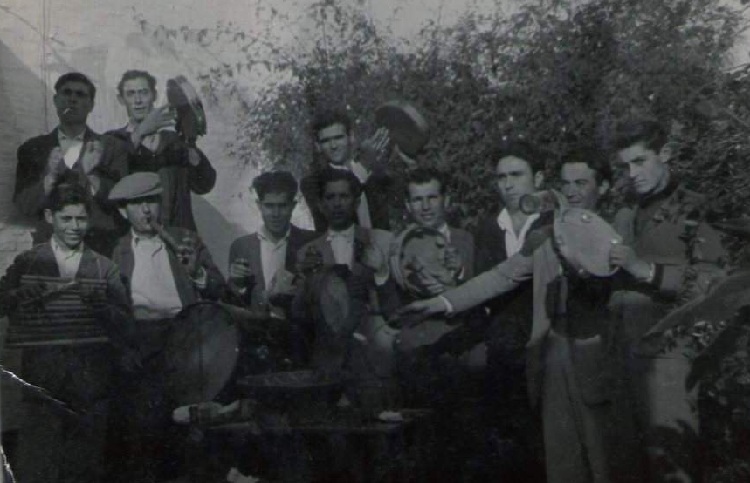The Diplomat
The Minister of Foreign Affairs, European Union and Cooperation, Arancha González Laya, appealed yesterday to put an end to human trafficking, described as “the slavery of our times”, at the closing of the I International Seminar on human trafficking held on March 1 and 2 at the Palacio de Viana.
The head of Spanish diplomacy stressed the urgent need to raise awareness of trafficking, an issue that “should be a priority on the global agenda”. For this reason, Spain is committed to raising this issue among allied countries, both at the United Nations and bilaterally, in addition to working together with the private sector, according to a note from the Ministry of Foreign Affairs.
The note adds that these conferences have emphasized the seriousness of the situation of human exploitation, in its different forms, and that it is, at the same time, a crime and a business with enormous profits, which today has become a real world scourge as a result of the development of new technologies, globalization and global migrations.
“In the current context, victims are increasingly vulnerable, their recruitment and exploitation is becoming easier, while the prosecution of this crime is becoming more complex between transnational networks and international financial flows”.
National and international experts addressed these issues at the 1st International Seminar on Combating Trafficking in Human Beings, which brought together more than a hundred attendees in person and online for two days.
Despite being a very diverse phenomenon, trafficking for sexual exploitation continues to be the most widespread form of trafficking, representing 50% of the total, followed by trafficking for labor exploitation with 38% of the total. The gender dimension of human trafficking is evident. Of the 100% of total trafficking victims, 50% are women, 20% are girls, and 20% are boys. In the case of trafficking for the purpose of sexual exploitation, 94% of the total number of victims are women and girls.
During the two-day meeting, international experts from the United Nations, the Organization for Security and Cooperation in Europe (OSCE), the Council of Europe, the Ministries of the Interior, Equality, Justice, Labor, universities, companies and representatives of civil society discussed three specific and strategic areas in the fight against human trafficking: financial flows, international supply chains and new technologies.
The Foreign Affairs note indicates that trafficking mafias use traditional and non-traditional financial instruments to move and invest the enormous profits generated by this criminal activity. The experts analyzed how and where these money flows internationally, suggesting new ways to better detect and confiscate them.
They also discussed vulnerabilities in supply chains in the business sector in order to generate good practices applicable to contracting and subcontracting of companies in key sectors such as textiles, construction and agriculture.
Finally, the experts analyzed the boom in the use of new technologies for the recruitment of trafficking victims, especially in the area of sexual exploitation, which has experienced an unprecedented increase since the beginning of the COVID-19 pandemic. The other perspective was also studied, i.e. how new technologies can be used for the early detection of both trafficking mafias and potential victims.







